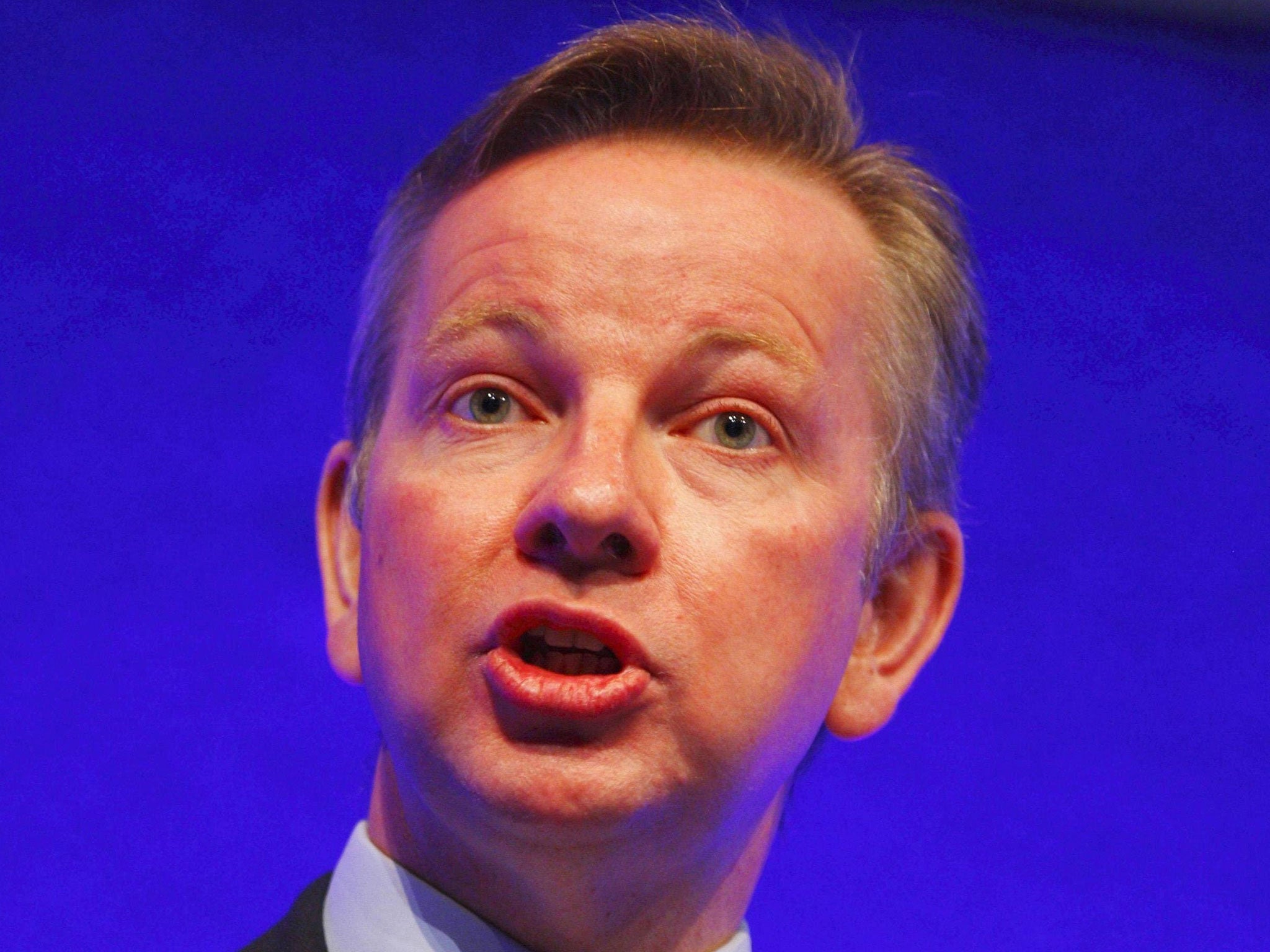Michael Gove under fire for Department of Education's stonewalling of Parliament in response to MPs' questions
Education Secretary and his department face possible legal action to force better accountability

Your support helps us to tell the story
From reproductive rights to climate change to Big Tech, The Independent is on the ground when the story is developing. Whether it's investigating the financials of Elon Musk's pro-Trump PAC or producing our latest documentary, 'The A Word', which shines a light on the American women fighting for reproductive rights, we know how important it is to parse out the facts from the messaging.
At such a critical moment in US history, we need reporters on the ground. Your donation allows us to keep sending journalists to speak to both sides of the story.
The Independent is trusted by Americans across the entire political spectrum. And unlike many other quality news outlets, we choose not to lock Americans out of our reporting and analysis with paywalls. We believe quality journalism should be available to everyone, paid for by those who can afford it.
Your support makes all the difference.Michael Gove has been formally asked to explain his department’s “exceptionally poor performance” in stonewalling questions from MPs, amid renewed accusations of a lack of accountability at the heart of the Government’s Education team.
The chairman of the House of Commons’ Procedures Committee, Charles Walker, said he was “well aware of the exceptionally poor performance” of Mr Gove’s team in providing answers to parliamentary questions, and remained “unconvinced” that they were making sufficient efforts in tackling the problem, which has led to increasing claims of a diminished accountability.
With the Information Commissioner’s Office not ruling out legal action to force the Department for Education to improve its record in answering Freedom of Information requests, a senior Whitehall official close to David Cameron told The Independent that Mr Gove’s department was in danger of “resembling an information black hole”.
The new demands for the Education Secretary to explain delays in answering MPs’ queries follows an official censure from the committee earlier this year, demanding that Mr Gove “secure improvements” over his accountability to the Commons.
Alex Cunningham, an MP on the Education Select Committee, recently told the Commons that the Education Secretary had “one of the poorest records in the House” in answering questions. He said Mr Gove had been “officially chastised for his poor failures” but this produced little effect.
Mr Cunningham accused education ministers of working “as a team” and “collaborating” on the same responses that promised a reply “as soon as possible”.
The Labour MP wrote to Mr Walker stating that formal questions on a range of education policies were being ignored by Mr Gove and other ministers.
The Procedures Committee, which monitors the internal practices and public business of the Commons, was asked to help “extract” answers from DfE ministers.
The DfE was recently asked about areas including teaching recruits, vocational qualifications, training of 17-year-olds, free schools, qualifications for head teachers, specialist education, members of the armed forces recruited in teaching, and schools leadership.
Education ministers David Laws, Elizabeth Truss and Matthew Hancock, all replied to the written questions sent from the shadow Education Secretary, Stephen Twigg. However, all of Mr Twigg’s replies received the same answer: “I shall let the Hon Member have a reply as soon as possible.”
Mr Cunningham told the Commons that he had tabled his questions a month ago and it had been three weeks since he received similar unfulfilled pledges in the ministers’ replies. He described the behaviour of the ministers as “unacceptable”. Written questions should be answered within one week, according to guidelines.
Senior civil servants working in the DfE told The Independent that comprehensive answers to parliamentary questions were regularly drafted and sent back to the relevant ministers.
A DfE spokeswoman said “extensive measures” were now being taken to address the performance in answering PQs; the DfE’s parliamentary team had been increased and more experienced senior staff was now involved in the process. Among other measures aimed at improving the record was a new IT system and revised guidance and training for staff who answered PQs.
Join our commenting forum
Join thought-provoking conversations, follow other Independent readers and see their replies
Comments